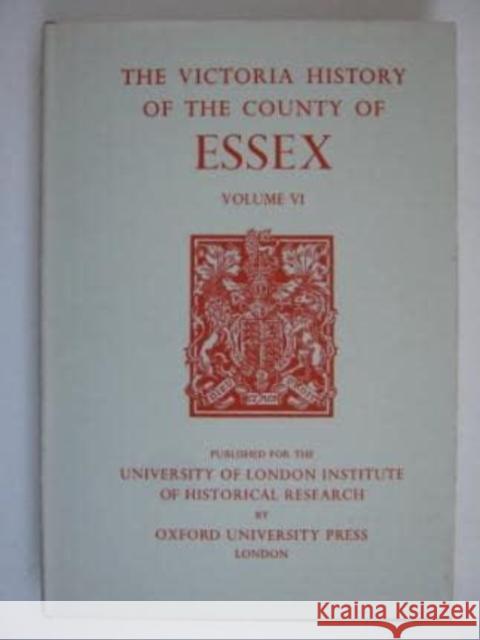A History of the County of Essex: Volume VI » książka
A History of the County of Essex: Volume VI
ISBN-13: 9780197227190 / Angielski / Twarda / 1973 / 434 str.
This volume completes Becontree hundred by providing histories of East Ham, West Ham, Little Ilford, Leyton, Walthamstow, Wanstead, and Woodford. The region, rural until the 19th century, is now part of Greater London. Though mainly residen-tial it includes, at Silvertown, Canning Town, and Stratford, one of the largest manufacturing centres in southern England, as well as the Royal Docks. Until 1965 the region remained outside London for admin-istrative purposes. This strongly influenced urban development, especially in East Ham and West Ham, which, as county boroughs, had sole responsibility for local government services and planning in a period of remark-able growth. West Ham, in 1898, was one of the first English towns to come under socialist control. Throughout the region the expanding population demanded the pro-vision of many new schools and churches, each of which is briefly treated in the vol-ume. In dealing with churches an attempt is made to assess the relative strength of the various denominations. Urbanization has swept away most of the visible remains of earlier history. Until the 19th century the region was fashionable with the gentry, and this is reflected in the size of some of the older parish churches, notably at Walthamstow and West Ham. At Little Ilford, by contrast, is one of the smallest churches in Essex. Wanstead House, the palladian mansion designed by Colen Campbell, was demolished in 1823, though much of its park has survived. The northern part of the region, bordering on Epping Forest, retains some attractive wood-land, especially at Walthamstow, Wanstead, and Woodford, where several 18th-century houses also survive. Notable modern build-ings include Wanstead hospital, built as an orphanage (1861), Sir Joseph Bazalgette's metropolitan sewage pumping station at Stratford (1868), and the town halls at East Ham (1903) and Walthamstow (1941). During the Second World War the south part of the region was heavily bombed, and since 1945 there has been large-scale redevelopment, especially at Canning Town, where the sky-line is increasingly dominated by tower blocks of council flats.











